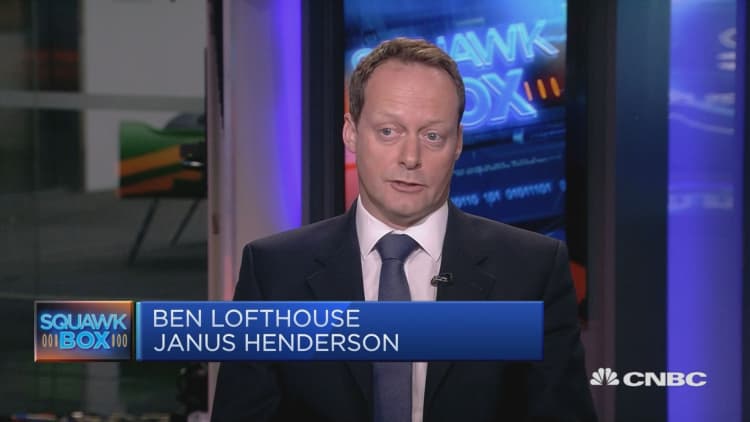Dividends paid out by global companies to shareholders have reached a new second-quarter record, according to a new report by investment firm Janus Henderson.
A dividend is a distribution from a portion of a company's earnings to shareholders, which is decided and managed by its board but approved by shareholders through voting rights.
The new report showed that payouts from companies in Japan, Canada, France and Indonesia broke all-time records for any quarter. Meanwhile, U.S. dividend growth slowed to 3.9% on a headline basis and 5.3% on an underlying basis (when excluding currency fluctuations) in the second quarter, the smallest increase for two years.
But despite slowing growth in the U.S., more than 80% of U.S. companies increased payouts, a higher proportion than in many other major economies.

Janus Henderson said in the research that slowing dividend growth was in line with expectations for 2019, and reiterated its forecast for the year of a total $1.43 trillion, an increase of 4.2% on a headline basis, or 5.5% underlying.
The report highlighted that exchange rates had a significant impact in the second quarter, as the dollar strengthened against most global currencies.
"This meant the dollar value of dividends paid in most parts of the world was translated at less favorable exchange rates," it added. "The biggest impact was in Europe, while Japan bucked the trend as the yen was stronger year-on-year against the greenback."
Overall, it was the slowest dividend growth in two years, up just 1.1% compared to a year ago. However, when excluding currency fluctuations it came in at 4.6%.
Europe lagging
Europe lagged the rest of the world, down 5.3% from the second quarter of 2018, but France emerged as Europe's largest payer, with underlying growth of 5.1% and its total payments reaching $51.0 billion. German dividends rose in line with the European average, but saw a number of companies cutting payouts.
Ben Lofthouse, head of global equity income at Janus Henderson, told CNBC Tuesday that there were also "company-specific" reasons for this.

"German corporates have been very successful tapping into global growth over the last 20 years, particularly Chinese growth, and areas like the auto industry have been paying big dividends for the last few years," he said.
"We're starting to see them rebase those, partially due to a slowdown in the auto industry in China and Europe, but also partly because of the increased investment that is needed for electric cars and some of the changes for the future."
The German industrial complex is therefore battling both lower growth and increased investment needs, leaving less room for dividend payments, he explained.
On the flip side, France's large global companies are having it considerably easier than their German counterparts, particularly in the banking and luxury sectors, which have been able to pay sizable dividends.
"Even though the economy is growing quite slowly, arguably in recent years more slowly than Germany, but they've got a wider spread of companies, less exposed to the auto industry, and they're still seeing growth," Lofthouse added.

